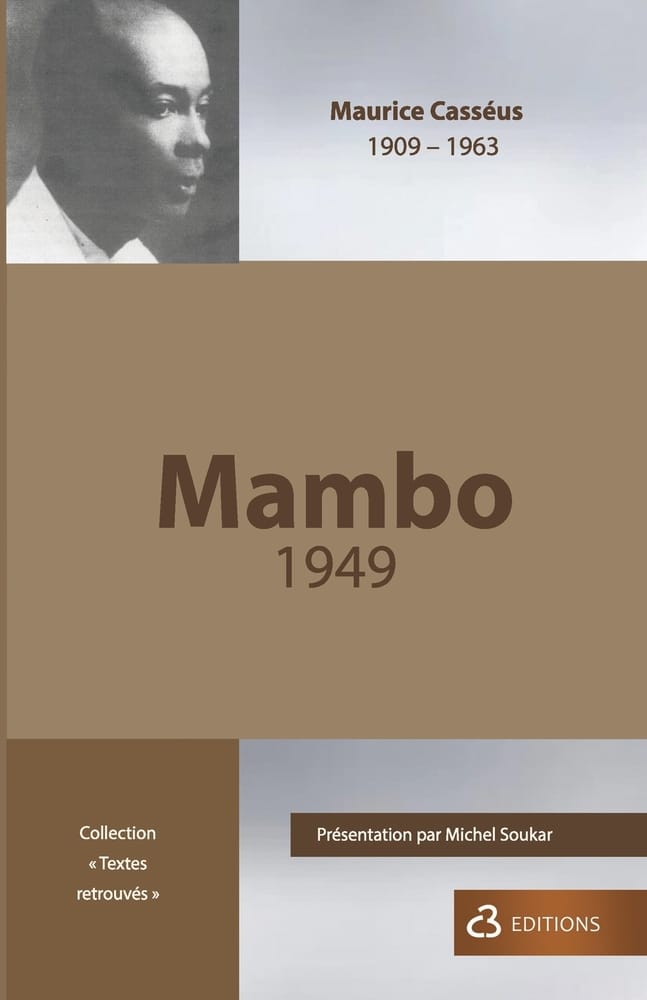When I read Maurice Casséus’s Mambo for the first time in 2023, I couldn’t shake the impression that I was reading a warning book. Written in 1949, this novel tells the story of a young Haitian girl deeply rooted in her land, her culture, her community, and her spirituality. But she loses everything—all her sense of connection—because a stranger makes her doubt who she is. This story tells the tale of aid dependency and broken trust systems, and we see their ultimate result in terms of the passivity we observe in the field.
Mambo is a prophecy disguised as fiction.
The Girl Who Forgot How to Dance with the Earth
Mambo knew all the secrets the earth whispered. She could tell you which tree would bear the sweetest fruit, where the medicinal herbs grew strongest, which path the animals preferred. Her feet had never known shoes because the earth was her first teacher, her most faithful friend. In the story, Mambo was cared for by the earth itself.
Then came Mrs. Gaby, well-intentioned and curious, but carrying unconscious assumptions. One observation about Mambo being “barefoot” and something shifted in the girl. For the first time in her life, she felt different. Incomplete. As if something was missing.
The animals stopped coming to her. She lost her connection with the goddess Aida. She had learned to see herself through external eyes, and in that reflection, she lost the gift of seeing her own strength.

When Fiction Becomes Universal Reality
Here’s what strikes me: Casséus wrote this in 1949, but the pattern he identified happens everywhere, across cultures and contexts. The moment we start defining ourselves by external validation instead of internal knowledge, we lose our authentic power.
This isn’t just about one girl or one place. This is about the universal dynamic between insiders and outsiders, between those who are rooted in a place and those who observe from the outside. This is about how well-intentioned comments can unconsciously create shame about what was previously a source of strength.
Maurice Casséus captured it perfectly: the most difficult influences aren’t the obvious ones. They’re the subtle ones that make us question our own foundations.
The Codependent Model: A Double Failure
Let me break down my interpretation of what actually happened between Mambo and Gaby, because this pattern repeats everywhere and involves failure on both sides:
Gaby’s failure was one of recognition and approach. Instead of seeing Mambo’s connection to the earth, her spiritual knowledge, and her natural abilities as a powerful foundation to strengthen, Gaby imposed external standards. She tried to correct perceived deficits instead of fortifying what was already strong. This is the classic development mistake: assuming that change requires replacing local tools rather than enhancing them.
But Mambo’s failure was equally devastating. Despite having been taught to preserve her own power, despite generations of wisdom about trusting her connection to the earth and her spiritual knowledge, she internalized the colonial mindset. She abandoned the very lessons that gave her strength in the first place, falling into the assumption that “the stranger knows better.”
Working with various generations in Haiti, I’ve witnessed this pattern firsthand. There’s a deep fear of making mistakes because so many people have given up when the work gets difficult. This trauma from broken promises creates a protective resistance to growth opportunities, even when they’re authentic.
This double failure created an unhealthy dynamic where Mambo began to see herself as lacking something, while Gaby was positioned as the one who could help “fix” what was now perceived as a problem. Dependency was created where none existed before, not only through Gaby’s approach, but through Mambo’s abandonment of her own sources of power.
In Casséus’s story, this codependent relationship has devastating consequences. The mountains themselves take revenge, and the earth begins to crumble around both of them. The earth that once nourished Mambo turns against her, reflecting how abandoning authentic power creates instability that affects everything and everyone connected to it.
Here’s the crucial insight: While they remained focused on this dynamic, the real challenges weren’t being addressed. The systems and structures that actually needed attention, the authentic problems that required collaborative solutions.
Colonial conditioning runs so deep that even when people have the tools for empowerment, the presence of external validation can override generations of wisdom.
The Hidden Revolution in Plain Sight
The solution isn’t more external validation or well-intentioned intervention. The solution is revolutionary in its simplicity, but requires transformation on both sides:
For Gaby: Instead of correcting Mambo’s perceived deficits, how can she help strengthen Mambo’s existing foundation? How can she prove through consistent actions that she’s committed to Mambo’s long-term elevation, not quick fixes?
For Mambo: How can she remain open to having her foundation strengthened, despite past experiences with people who abandoned her when the work got difficult? How can she practice vulnerability while protecting the fundamental wisdom that makes her powerful?
When people learn to fortify their existing strength and supporters prove their commitment through sustained actions rather than promises, they can turn their energy toward real collaboration: addressing genuine challenges together while building on what’s already strong.
This isn’t about rejecting all outside perspectives. This is about ensuring that external engagement strengthens rather than undermines indigenous power.
Lead with Purpose, Not Funding
This brings me to the game-changing principle: Lead with purpose, money will follow.
For too long, many of us have approached this backwards. We lead with funding: throwing resources at perceived problems, creating dependency, wondering why sustainable change remains elusive. But when we lead with purpose, when we start with shared vision and authentic partnership, resources become what they should be: tools serving the mission, not masters directing it.
Imagine if Mambo and Gaby had met differently. Imagine if instead of unconscious judgment, there was authentic curiosity. Instead of “you’re missing something” (implying lack), what if it was “your foundation is good, how can we make it even stronger?” (implying existing power to build upon)?
Imagine if Gaby had said: “Your connection to the earth is incredible, how can we strengthen this knowledge to address the challenges your community faces?” Imagine if Mambo had responded: “I’m ready to let you help fortify what I already know, and I commit to staying active in this process.”
Imagine if they had first aligned on purpose: strengthening the community, honoring local knowledge, addressing real challenges together. Resources would have followed naturally, but as fuel for their shared mission, not as solutions to manufactured problems.
The Path Forward
Casséus gave us more than a story: he gave us a framework. The path forward doesn’t go through more of the same helper-helped dynamics that keep us spinning in circles. It goes through recognizing inherent capabilities, demanding authentic partnership, and leading with purpose so clear that resources naturally align to support it.
For those with authentic power: Your foundation is already strong. The question isn’t whether you’re broken or lacking, it’s whether you’re ready to let others help strengthen what you already have, despite past experiences with people who abandoned the work when it got difficult.
For those offering support: Your role is to strengthen existing foundations, not correct perceived deficits. Prove your commitment through consistent actions over time, not just good intentions. Show up for long-term elevation, not quick fixes.
Real change awaits authentic collaboration. It awaits internal clarity of purpose combined with mutual respect.
The question Casséus left us remains: Will Mambo remember her authentic power? Will she break the colonial conditioning that makes her question her own foundation?
Because when we do, when we stop chasing validation and start pursuing meaning, when we lead with purpose, change becomes sustainable. Resources follow. Problems get solved. And authentic collaboration becomes possible.
What are you leading with today: purpose or funding? The mountains are listening.
